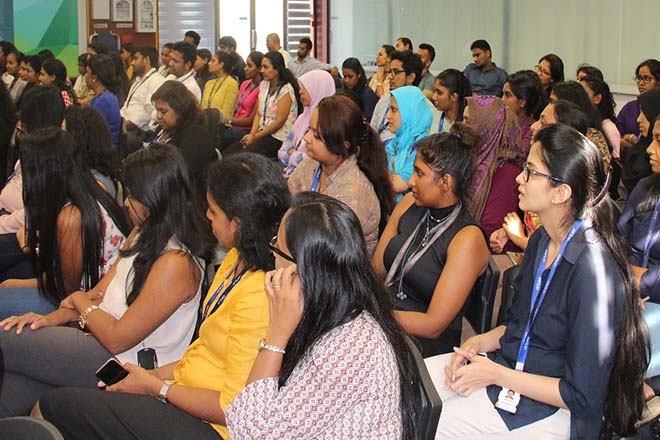Institute of Policy Studies - IPS
These technological advances of the hold significant implications on existing gender structures and balances, especially in the labour market. While optimists point out to opportunities for strengthening women’s position through greater gender equality through the 4IR, counterarguments that are put forward signal the 4IR would be ‘gender blind’. Entrenched inequalities and discriminatory social norms that keep women restricted to low-paid, poor-quality jobs are likely to further deepen by the 4IR. Meanwhile, Sri Lanka, still struggles with key dimensions of gender empowerment and equality, namely, economic and political empowerment.
Impact on Labour Market
Studies on transformation of occupational structures due to the 4IR have seen job losses in both male-dominated occupations such as construction, and female-dominated occupations such as clerical work. Also, evidence indicates major gains in some male-dominated occupations – e.g. information technology (IT) professionals, and some female-dominated occupations such as cleaners and helpers.
The impact of structural change in the labour market on women due to the 4IR will be particularly appalling. Given that women are already underrepresented in tech jobs, they are more vulnerable to job losses due to the 4IR. According to predictions and estimations, some existing sectors as well as job categories will become obsolete due to automation. Job losses for women are predicted to be more than for men.
Given that women are more likely to be involved in repetitive work throughout the labour market (with the exception of clerical support workers), an average improvement of the content of women’s job might be expected if automation occurs mainly in relation to repetitive or routine tasks. It is predicted that this could thus raise the quality of women’s jobs, while reducing their number. However, repetitive jobs will not necessarily disappear initially, as it may still be cheaper to use labour than machines when more disadvantaged groups such as women are employed for low wages.
The 4IR is also expected to bring in some critical changes to existing gendered norms and roles in the labour market. It will reverse the gender stereotypes created by the first, by placing an emphasis back on human talent such as ingenuity and creativity, and not on traditional masculine skillsets. On-demand production of customised products and talent will be the most valuable asset in the 4IR. In an economy which is based more on talent and less on capital, there is a higher prospect of women being treated more equally. Further, there will be fewer obstacles for women to talent acquisition and retention.
Education, Skills and Gender in the 4IR
Despite the pressing need to equip students with STEM education to face challenges of the 4IR successfully, it is clearly evident that women are at a disadvantage position to access STEM education and skills. This is reflected by low female representation in STEM-based jobs. At present, gender differences exist in STEM education at all levels of education.
Apart from the weak educational progress in STEM by women, a clear gender disparity can also be observed in vital skills required by the 4IR. For example, there is a noticeable gender disparity in AI skills. AI is regarded as a prominent feature and skill within the transformations brought about by the 4IR. Globally, only 22 per cent of AI professionals are female, compared to 78 per cent who are male, accounting for a gender gap of 72 per cent.
Gender Digital Divide
The existing gender digital divide prevent or limit women’s access to, use of and benefits from ICT. Position of women who are already disadvantaged by such divisions further worsens with the emergence of the 4IR, which is built upon an ICT-based third industrial revolution.
Gender digital divide is apparent in Sri Lanka. As of early 2017, 6 million active internet users and 25 million mobile connections were reported in Sri Lanka. In numerical terms, computer literacy stood at 31.1 per cent and 26.4 per cent for men and women respectively, in Sri Lanka. Similarly, digital literacy for men is 44.2 per cent and 36.3 per cent for women. This existing gender digital divide will place extra pressure on Sri Lanka in meeting the challenges of the 4IR.
Policy Recommendations
The gendered impact of the 4IR should be considered as vital, given the already poor performance of the country in ensuring gender equality in certain key areas.
Opportunities that come with the 4IR should be explored to encourage greater economic participation of women. In this regard, the platform economy will allow women to work remotely, where flexibility allows them to access the labour market and remain in it.
A comprehensive restructuring of the education system will be needed to fulfill the requirements of the 4IR. STEM-based education can play an important role as a stepping stone to the era of the 4IR. New STEM-based subjects such as genomics, data science, AI, and robotics will be in demand that need to be taught. Existing gender imbalances in STEM education, where girls are at a more disadvantaged position, suggest that extra efforts are needed to enhance girls’ participation in STEM education. Increasing the number of subject qualified teachers and schools offering such classes are key steps which should be taken in order to enhance STEM education in Sri Lanka.
The gender digital divide – the socio-economic obstacles which prevent women’s access to, use of and benefit from ICT – constraints women from fully benefitting from the 4IR. Taking steps to eliminate the prevailing gender digital divide should be considered a priority, as these steps will enable many more women to benefit from the new technological advancements.

